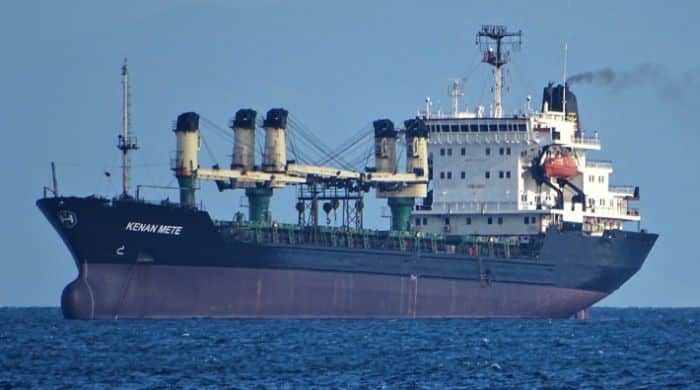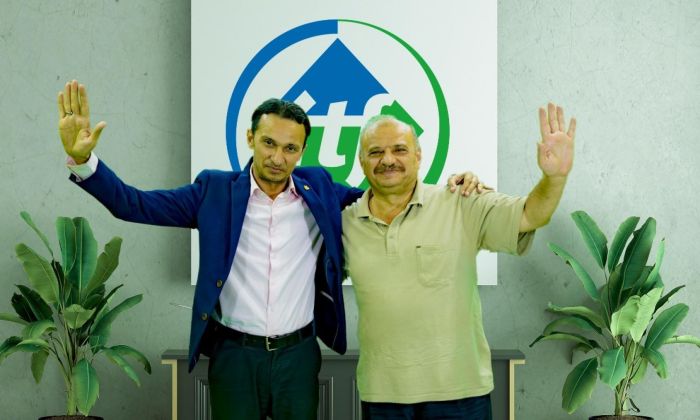
[ad_1]

Captain Vehbi Kara was allowed to return home to Turkey last week having been trapped in the port of Adabiya, Suez for more than a year as the latest seafarer affected by Egypt’s peculiar legal guardianship system.
Most of Captain Kara’s long year in Egypt was aboard his ship, the Panama-registered MV Kenan Mete (IMO 8701935). The Kenan Mete became abandoned in June 2020, when the vessel’s owners, Blodwen Marina, refused to pay the crew. Egyptian authorities then seized the ship with a view to selling it to cover its debts, including the crew’s pay.
But an Egyptian court determined that someone (Captain Kara specifically), must become the ship’s legal guard. Similar to the fate that befell navigational officer Mohammad Aisha who was made legal guardian of the MV Aman for four years, Captain Kara was blocked from leaving the vessel by his new legal status. The court’s decision required Kara to stay onboard without any pay, with no end-date given, or any plans made to relieve him if the ship’s sale dragged on.

Image Credits: itfseafarers.org
The crew’s plight onboard the abandoned Kenan Mete grew from days to weeks to months. Fortunately, the ship’s P&I Club, the insurer, provided the seafarers with food, water, and other basic amenities. The crew had another organisation supporting their welfare: the ITF.
The International Transport Workers’ Federation, or ITF, is a federation of the world’s seafarer unions, and its inspectors and coordinators work with local affiliates and contacts to help seafarers in need. Seafarers like the crew of the Kenan Mete.
Under the leadership of the ITF’s Arab World and Iran network coordinator Mohamed Arrachedi, the federation secured the release and repatriation of almost all the crew between October 2020 and January 2021, along with four months’ pay. Arrachedi worked with the ITF contact for Egypt, Alsayed Alchazli, on the seafarers’ behalf – one of several cases the two have worked on together during the pandemic.
Alchazli understands the challenges abandoned seafarers face. He heads the Egyptian seafarer officers’ union and is a former seafarer himself.
While the ITF had secured the crew’s release, the ITF’s advocacy had its limits. Egypt’s legal guardian system prevented the ship’s master from following his crewmates off the ship and home to their families. Clearly the situation of Captain Kara being the only person on board was intolerable to the ITF, so Arrachedi and Alchazli looked for other solutions to ease his inhumane situation.
“At this stage, the captain remained hostage on board and was not allowed to leave, or even go ashore, despite the clear abandonment situation,” said Arrachedi, recalling Kara’s months alone on the Kenan Mete in the Suez.
ITF advocacy saw Captain Kara shifted from being alone on the ship to a nearby hotel, when the ship’s power failed in March 2021. While Kara was blocked from leaving the hotel, the room he stayed in was at least paid for by the ship’s insurer. Arrachedi continued to fight for Kara to be paid his outstanding wages.
Meanwhile, the fate of the ship that Kara remained tied to was unclear. In 2021 there were several auctions, but the MV Kenan Mete struggled to find a buyer.
Captain Kara goes home
In late June 2021, a breakthrough came in the fight to get Kara home to Turkey.
“It was only when ITF took up his cause and we organised a replacement as judicial guard, after months of campaigning for his release, that Captain Kara was allowed to go home,” said the ITF’s Arrachedi.
With the immigration paperwork completed and flights purchased, Kara headed for the airport – first stopping by to thank ITF contact Alsayed Alchazli, who along with Arrachedi, had been working hard for Kara’s freedom.

Image Credits: itfseafarers.org
Reflecting on his ordeal, plane tickets in hand, Kara is full of praise to those who helped him.
“Maritime work is hard at the best of times,” said Captain Kara, “But I have only survived the last 14 months because the ITF was always by my side. God bless all your hard work. Thank you also to our P&I and the Turkish Embassy.”
Legal guardian system needs urgent reform
Arrachedi hopes Kara’s case provides a prompt for Egypt to take a closer look at how it deals with abandoned vessels and the seafarers onboard, especially coming so soon after Mohammad Aisha’s abandonment experience in the Suez received worldwide attention.
In particular, Arrachedi said, Egypt’s legal guardianship system needed urgent reform.
“It is wonderful news that Captain Kara is going home,” said Arrachedi. “But we must reflect on the fact that it took an organisation like the ITF getting involved, arranging a reliever as legal guard, and applying to a court, to secure this outcome. Repatriating an abandoned seafarer should be more straight-forward than that.”
“Port States like Egypt have a moral duty to help abandoned crew get home. Egypt has an opportunity now to reform its legal guardianship system – and we hope that they take up this opportunity,” said Arrachedi.
Reference: itfseafarers.org
[ad_2]
This article has been posted as is from Source